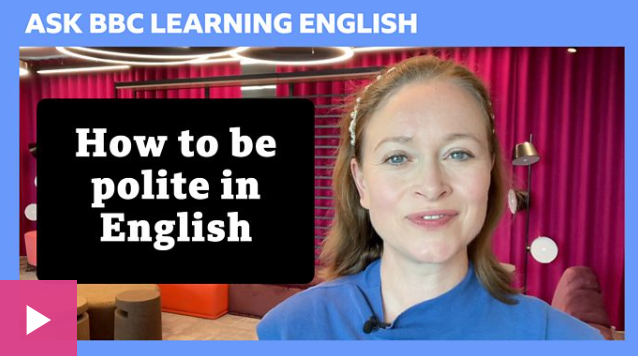Introduction
Marta has sent us a question. She wants to know how to sound polite and have good manners in English. You can say ‘please’ and ‘thank you’ but Sian’s got some tips.
Giving opinions
1. It can sound a bit rude to give your opinion in a direct way. To be less direct, use verbs like ‘reckon’, ‘feel’, ‘guess’ or expressions like ‘a little’, ‘sort of’, ‘kind of’ etc.
- I reckon your essay was a little too short
- I think that’s kind of unhelpful.
2. You can turn a statement into a question to make it more polite.
- Don’t you think your essay is a little short?
- Could that be kind of unhelpful?
Requests
1. Direct requests can sound rude. Use modal verbs, past forms or continous forms to soften them.
- Could you go to the shops for me?
- I was wondering if you could get something for dinner.
2. Use question tags.
- You couldn’t go to the shops for me, could you?
3. Use introductory phrases like ‘would you mind?’, ‘if/when you have time’
- Would you mind getting us something for dinner, if you have time?
Saying ‘no’
1. We can find it hard to say ‘no’ directly in English. Instead, use unsure and tentative language like, ‘I’m not sure’, ‘I doubt’, ‘probably’.
- I’m not sure I can come to your party.
2. Giving a reason is more polite.
- I’m not sure I can come to your party. It’s my mum’s birthday.
Problems and mistakes
1. Being direct about problems and mistakes can make the other person feel uncomfortable. To talk about problems in a less direct way, use verbs like ‘seem’, ‘appear’, ‘look’.
- It seems that you’ve charged me too much.
8. You can also use the passive form.
- It seems that I’ve been charged too much.
Set phrases
Learn some set phrases to sound more polite.
- Pardon?
- Could I just have a moment, please?
- Excuse me
- Can I help you?
